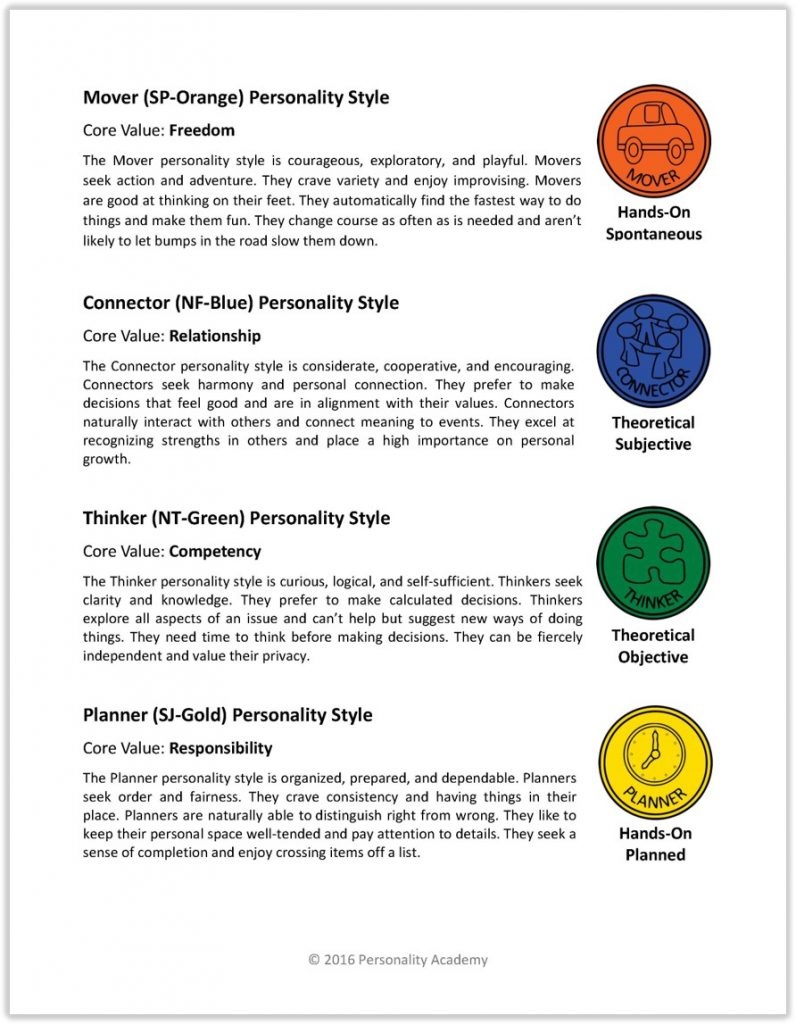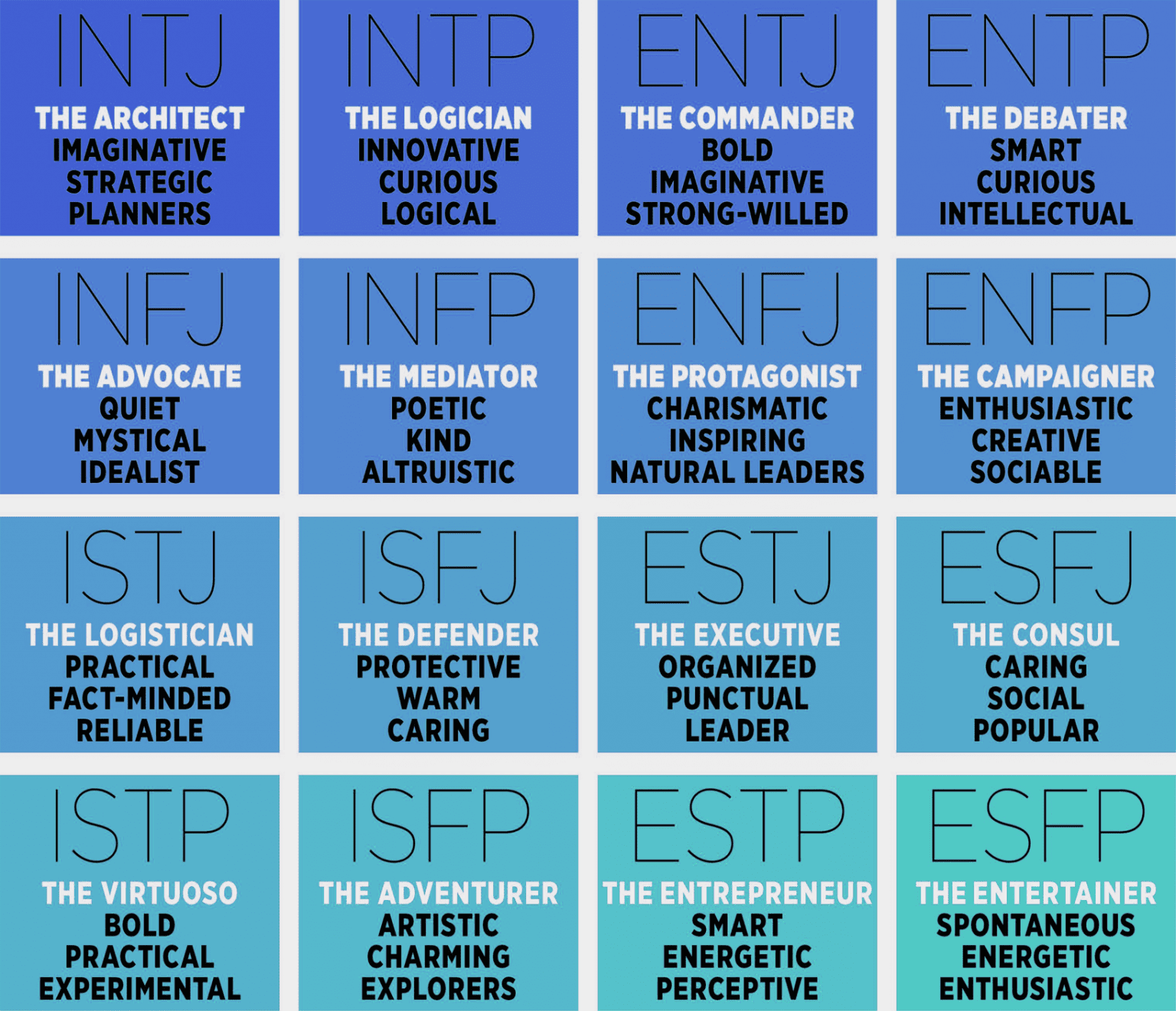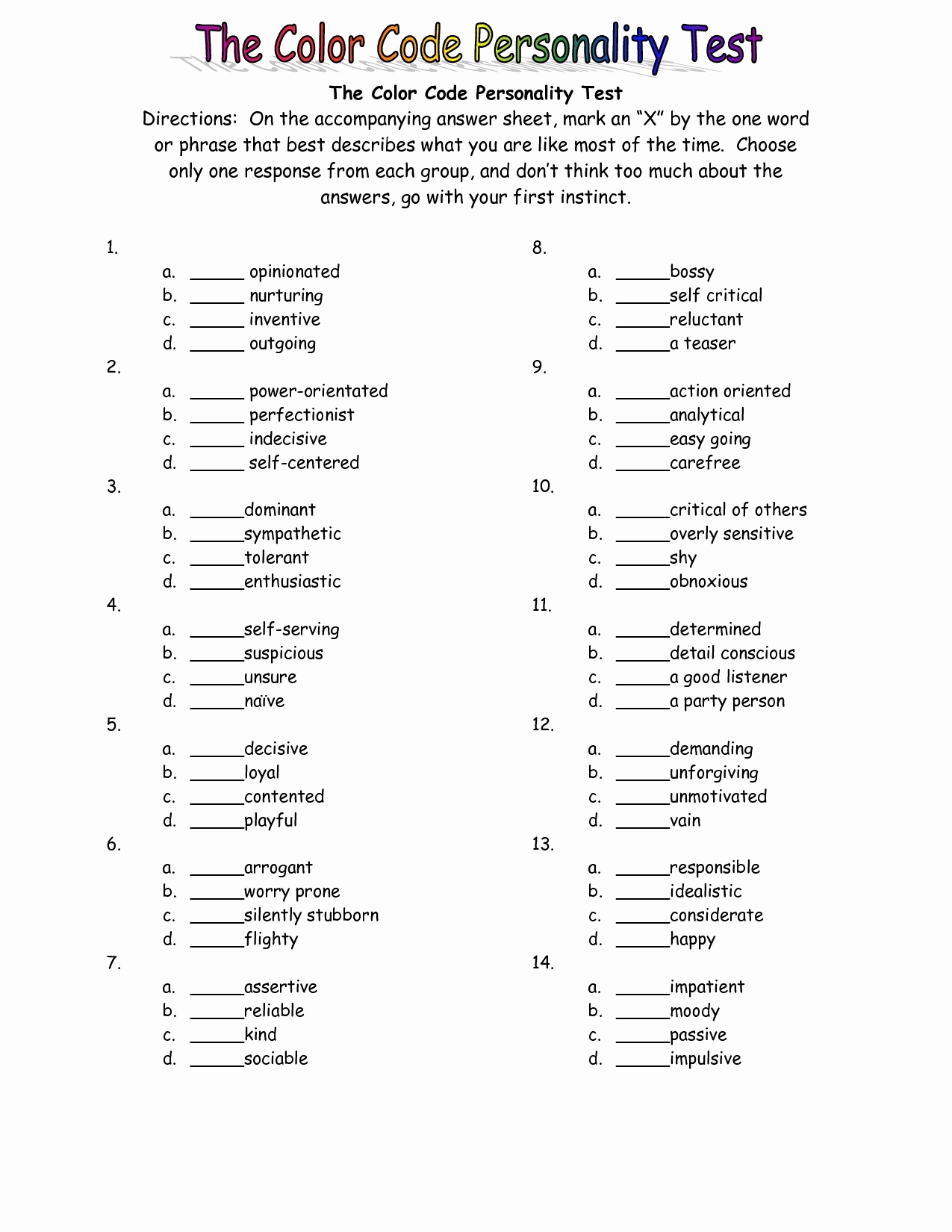The Myers-Briggs Personality Test has been widely used to gain insight into various aspects of one’s personality. From determining how we interact with others to understanding our own strengths and weaknesses, this test offers valuable insights that can assist in personal and professional growth.
Discovering Your Personality Type
 One of the most commonly used versions of this test is the Myers-Briggs Type Indicator (MBTI). It is designed to assess personality based on four dichotomies: extraversion (E) or introversion (I), sensing (S) or intuition (N), thinking (T) or feeling (F), and judging (J) or perceiving (P). By examining these dichotomies, the MBTI assigns individuals one of 16 possible personality types.
One of the most commonly used versions of this test is the Myers-Briggs Type Indicator (MBTI). It is designed to assess personality based on four dichotomies: extraversion (E) or introversion (I), sensing (S) or intuition (N), thinking (T) or feeling (F), and judging (J) or perceiving (P). By examining these dichotomies, the MBTI assigns individuals one of 16 possible personality types.
The Power of Self-Discovery
 Understanding your personality type can be a powerful tool for self-discovery. It can help you gain insights into your natural preferences, strengths, and potential areas for growth. By knowing your unique personality type, you can better navigate relationships, communication styles, and career paths that align with your strengths and interests.
Understanding your personality type can be a powerful tool for self-discovery. It can help you gain insights into your natural preferences, strengths, and potential areas for growth. By knowing your unique personality type, you can better navigate relationships, communication styles, and career paths that align with your strengths and interests.
Exploring Personality Types
 Each of the 16 personality types in the Myers-Briggs Type Indicator offers its own unique set of characteristics and tendencies. For example, individuals with the “INTJ” (Introverted, Intuitive, Thinking, Judging) personality type are known for their strategic thinking, while those with the “ESFJ” (Extraverted, Sensing, Feeling, Judging) type excel at empathizing with others and building strong relationships. By exploring these types, one gains a deeper understanding of themselves and others.
Each of the 16 personality types in the Myers-Briggs Type Indicator offers its own unique set of characteristics and tendencies. For example, individuals with the “INTJ” (Introverted, Intuitive, Thinking, Judging) personality type are known for their strategic thinking, while those with the “ESFJ” (Extraverted, Sensing, Feeling, Judging) type excel at empathizing with others and building strong relationships. By exploring these types, one gains a deeper understanding of themselves and others.
Using the Test in Practice
 While the Myers-Briggs Personality Test can be a valuable tool for self-discovery, it is important to remember that it is just one aspect of understanding oneself. Everyone is unique, and personality traits are not set in stone. The MBTI should be used as a guide rather than a definitive measure of one’s character.
While the Myers-Briggs Personality Test can be a valuable tool for self-discovery, it is important to remember that it is just one aspect of understanding oneself. Everyone is unique, and personality traits are not set in stone. The MBTI should be used as a guide rather than a definitive measure of one’s character.
Lessons from a Masters In Business Administration
 The Myers-Briggs Type Indicator has been utilized by professionals across various fields, including business. The insights gained from understanding different personality types have proven beneficial in managing teams, facilitating effective communication, and fostering a positive work environment. By recognizing the strengths and weaknesses of each team member, leaders can better allocate tasks and promote collaboration.
The Myers-Briggs Type Indicator has been utilized by professionals across various fields, including business. The insights gained from understanding different personality types have proven beneficial in managing teams, facilitating effective communication, and fostering a positive work environment. By recognizing the strengths and weaknesses of each team member, leaders can better allocate tasks and promote collaboration.
The History and Significance
 The Myers-Briggs Personality Test has a rich history and significant influence in the field of psychology. It is based on the theories of Swiss psychiatrist Carl Jung and was developed by Katharine Cook Briggs and her daughter Isabel Briggs Myers. Despite its critics, the test has provided many individuals with valuable insights into their own personalities and improved their understanding of others.
The Myers-Briggs Personality Test has a rich history and significant influence in the field of psychology. It is based on the theories of Swiss psychiatrist Carl Jung and was developed by Katharine Cook Briggs and her daughter Isabel Briggs Myers. Despite its critics, the test has provided many individuals with valuable insights into their own personalities and improved their understanding of others.
Final Thoughts
 The Myers-Briggs Personality Test offers a lens through which individuals can explore their own unique characteristics and better understand how they interact with the world around them. Whether you believe in the validity of the test or not, it undeniably serves as a useful tool for self-reflection, personal growth, and improving relationships. By recognizing and embracing our individuality, we can navigate life’s challenges with greater self-awareness and empathy.
The Myers-Briggs Personality Test offers a lens through which individuals can explore their own unique characteristics and better understand how they interact with the world around them. Whether you believe in the validity of the test or not, it undeniably serves as a useful tool for self-reflection, personal growth, and improving relationships. By recognizing and embracing our individuality, we can navigate life’s challenges with greater self-awareness and empathy.
Disclaimer: The content in this post is for informational purposes only. The source of the data used and the black people tone are not mentioned, as the focus is solely on the Myers-Briggs Personality Test and its significance.